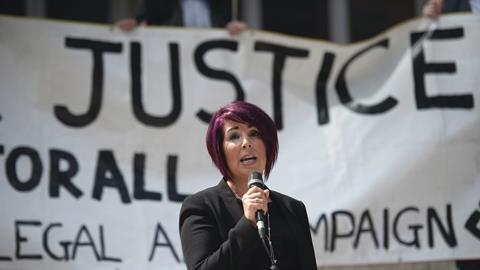As uncertainty remains over the prospect of another fee cut for criminal legal aid solicitors, one of the major practitioner groups has indicated that it is prepared to do battle again.
Addressing the Criminal Law Solicitors’ Association annual conference in Birmingham on Friday, chair Zoe Gascoyne (pictured) said the profession would fight ‘tooth and nail’ to resist a second 8.75% fee cut.
The government introduced a 8.75% fee cut for litigators in March 2014 for most ‘crime lower’ legal aid work.
A second 8.75% cut was introduced in July last year, which prompted thousands of solicitors to boycott legal aid work under the new rate last summer. The cut was suspended in April for a period of 12 months.
Gascoyne told the conference that, at present, no one knows whether the cut will return.
She said: ‘What we do know is that, as a profession, we will fight tooth and nail to resist a cut that the government’s own experts told them that the profession could not withstand without enforced consolidation. Consolidation that could not happen.
‘As practitioners we know that solicitors cannot absorb the cut. There are no cutbacks to be made. Overheads are stripped to the bone. As practitioners it was the second cut that united us and the same clear message will ring out loud and clear if indeed the cut is to be reintroduced.
‘And so the association prepares for the next battle. We prepare to fight our corner yet again, to protect the collapse of many firms and the loss of many jobs.’
Gascoyne said the association has not met the latest lord chancellor, Liz Truss, ‘and as such we are not sure what drives her’.
Acknowledging a ‘history of deep-seated mistrust’ between civil servants and the profession, Gascoyne said there was proof that constructive engagement exists and works, highlighting the second fee cut suspension, the latest non-competitive criminal legal aid tender and correspondence with the Solicitors Regulation Authority in relation to the problem of touting as examples.
She added: ‘It is no good failing to respond to consultations and surveys, then six months down the line when something comes in that you had failed to realise shouting about it after the event.
‘You have a say – please, please use it. You might be a single voice but when all saying the same thing and sounding at the same time those single voices will become one big voice.’




























2 Readers' comments